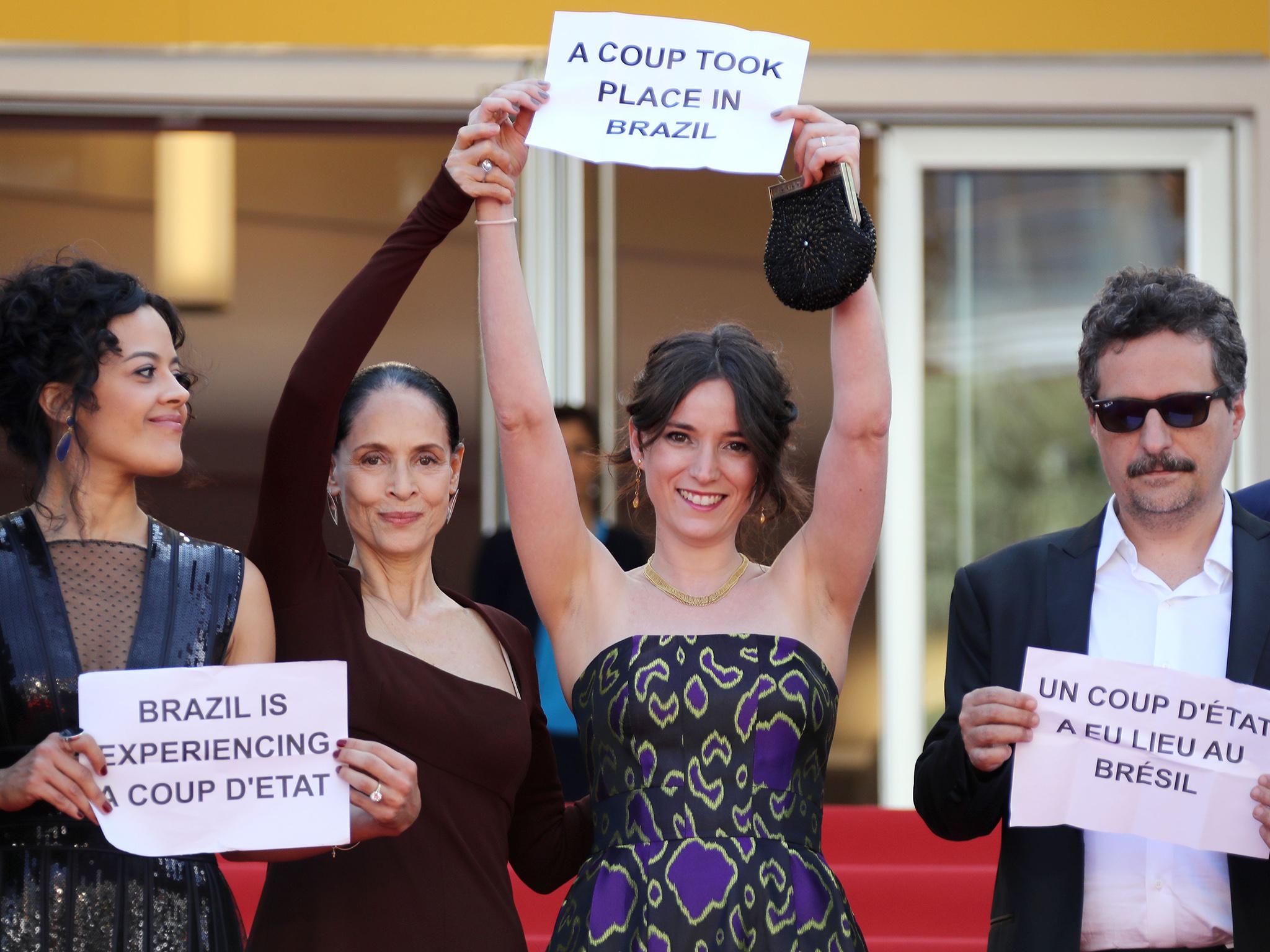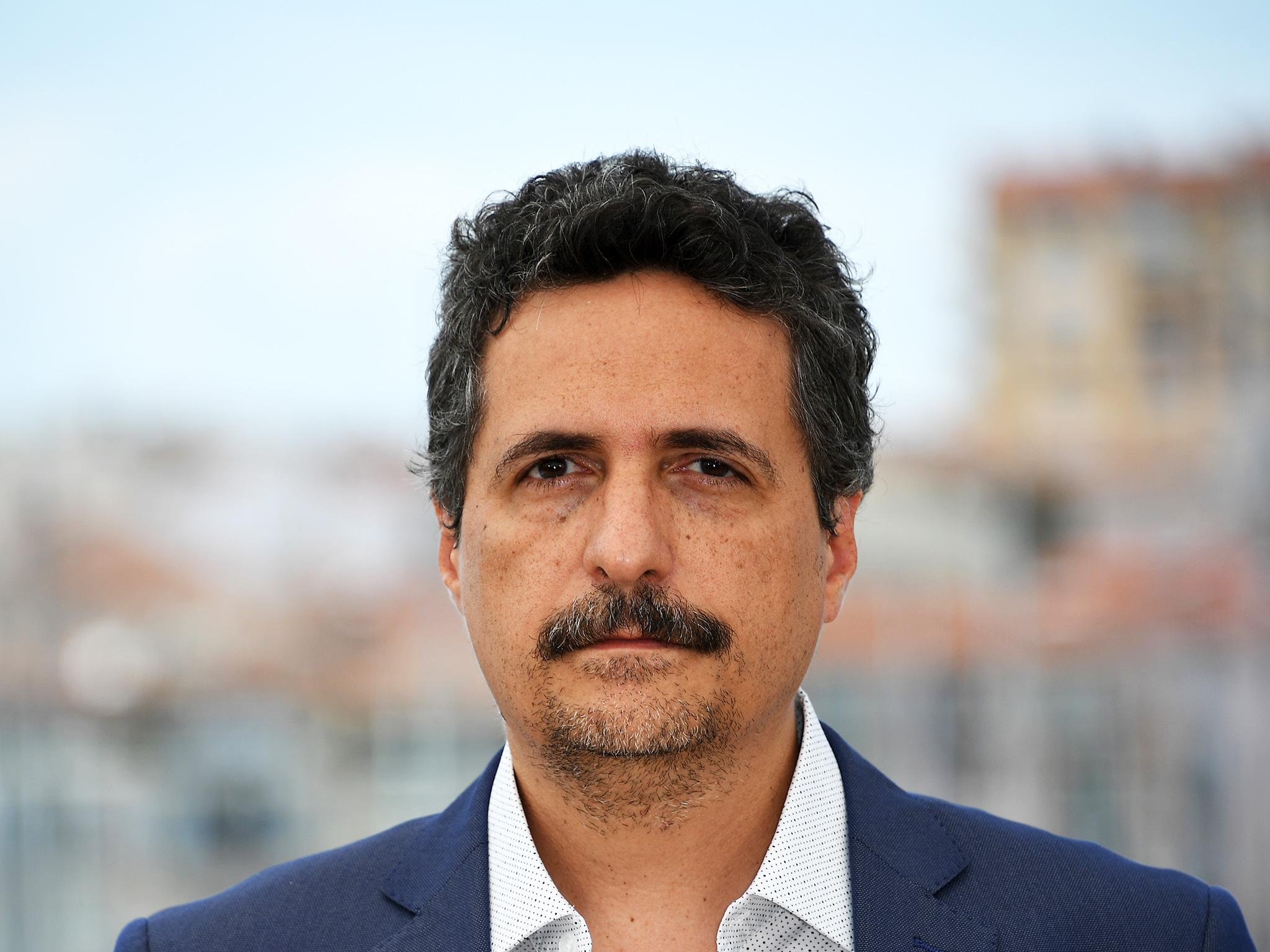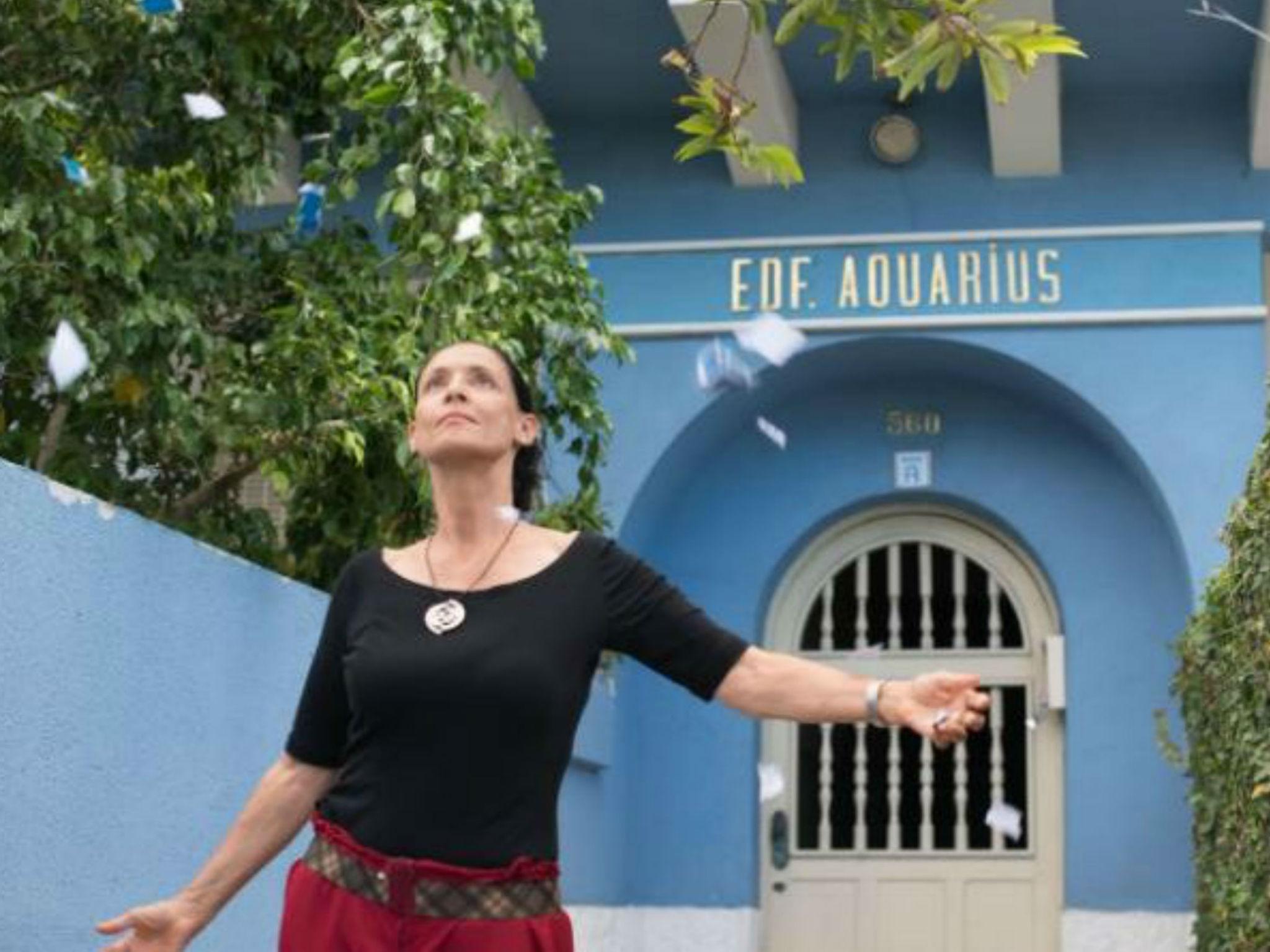Aquarius' Kleber Mendonça Filho interview: 'We are Brazil’s most prestigious film in many years'
The Brazilian director's film was snubbed by his country as a contender for Best Foreign Language Oscar nomination supposedly after the cast protested about the impeachment of the Brazilian President Dilma Roussef on the red carpet at last year's Cannes Film Festival - but now it has been released in Brazil, it is no longer overshadowed by politics

The political fallout that accompanied Kleber Mendonça Filho’s Brazilian drama Aquarius has sometimes overshadowed that it’s a great film about gentrification, growing old and family relations. Critics lauded Aquarius at the Cannes Film Festival, where it was a major surprise when the beguiling Sonia Braga did not win the best actress prize.
Braga plays Clara, a retired music critic famed for her eclectic tastes – anything from Queen, to Gilberto Gil and Heitor Villa-Lobos – all used to give Aquarius a stunning diegetic soundtrack. The stubborn widow is also refusing to move out of Aquarius, a 1940s apartment block where she brought up her three children, that property developers now want to bulldoze.
Clara’s opposition to the increasingly underhand tactics used by the construction company in their efforts to move her out make her a perfect allegory for the fight against unfettered capitalism.
Aquarius had its Cannes world premiere last May days after the 36th Brazilian President Dilma Roussef was suspended following impeachment proceedings. It was a decision that irked director Filho and on the red carpet, he, along with his cast and crew, unfurled banners proclaiming that the action had been a coup and “Brazil is not a Democracy”.

The counter-reaction saw #BoycottAquarius became a trending topic on Twitter. The leading voice criticising the Cannes red carpet demonstrations was that of film critic Marcos Petrucelli. He argued that the Aquarius filmmakers were in the pocket of the Rousseff government.
The new government put Petrucelli on the Oscars selection committee. A move that seemed designed to ensure that Aquarius would not get the Brazilian Foreign Language Oscar nomination.
A quirk a fate meant that on September 1st 2016, the day Rousseff was officially dismissed Aquarius was released in Brazil. “The film entered the market with a lot of energy,” recalls Filho.
At the end of screenings audience members would scream “Temer out!” The belief continued that the 37th President took over the country with no democratic mandate.

“The only real kind of bummer is the Oscar thing,” says the director. “It’s almost like film criticism, it’s not about what is the best film, it’s about which is the most prestigious and we are Brazil’s most prestigious film in many years.” He points to the fact that it played in competition at the Cannes film festival and that it will be released in over 60 territories as evidence.

Watch Apple TV+ free for 7 day
New subscribers only. £8.99/mo. after free trial. Plan auto-renews until cancelled.
ADVERTISEMENT. If you sign up to this service we will earn commission. This revenue helps to fund journalism across The Independent.

Watch Apple TV+ free for 7 day
New subscribers only. £8.99/mo. after free trial. Plan auto-renews until cancelled.
ADVERTISEMENT. If you sign up to this service we will earn commission. This revenue helps to fund journalism across The Independent.
I ask him whether he feels the external politics is overshadowing the film. “I was afraid that might happen, because everyone was discussing a film that they had not seen. Once the film opened in Brazil it became about the film.”
He relates the Brazilian reaction to Aquarius to that seen in Britain surrounding the release of Ken Loach’s I, Daniel Blake. Although the feeling and tone of the films are very different, Aquarius being told in a more poetic less didactic manner, Filho says: “I thought both films are very much about what’s going on in society today. Clara is the same character as Daniel Blake, in many ways. Of course, the way the story is told is very different.”
To understand the 49-year-old director one must go back to his childhood growing up in Recife, the largest metropolitan area in the north of Brazil. “I remember what it felt like,” he recalls. “Driving into the countryside in the 1980s it was terrible, on the side of the roads there were hungry families.”
He saw this change only after the election of the popular Socialist president Lula, elected in 2002: “The first change came from Lula. It’s not just money that he put in, but also organising social development. I thought it would take decades to change, but no it was within one single decade. I was surprised. It struck me that something was done there. And then, this is something that Lula should apparently get 50 lashes for, because there is a horrible tension between the north and south in Brazil. In Rio, everyone jokes about where I come from.”
He dreamed of becoming a filmmaker but turned to writing about film when no one would finance his feature films: “As it was still too hard to make films in Brazil in the 1990s.”
'Aquarius' is out 24 March
Join our commenting forum
Join thought-provoking conversations, follow other Independent readers and see their replies
Comments